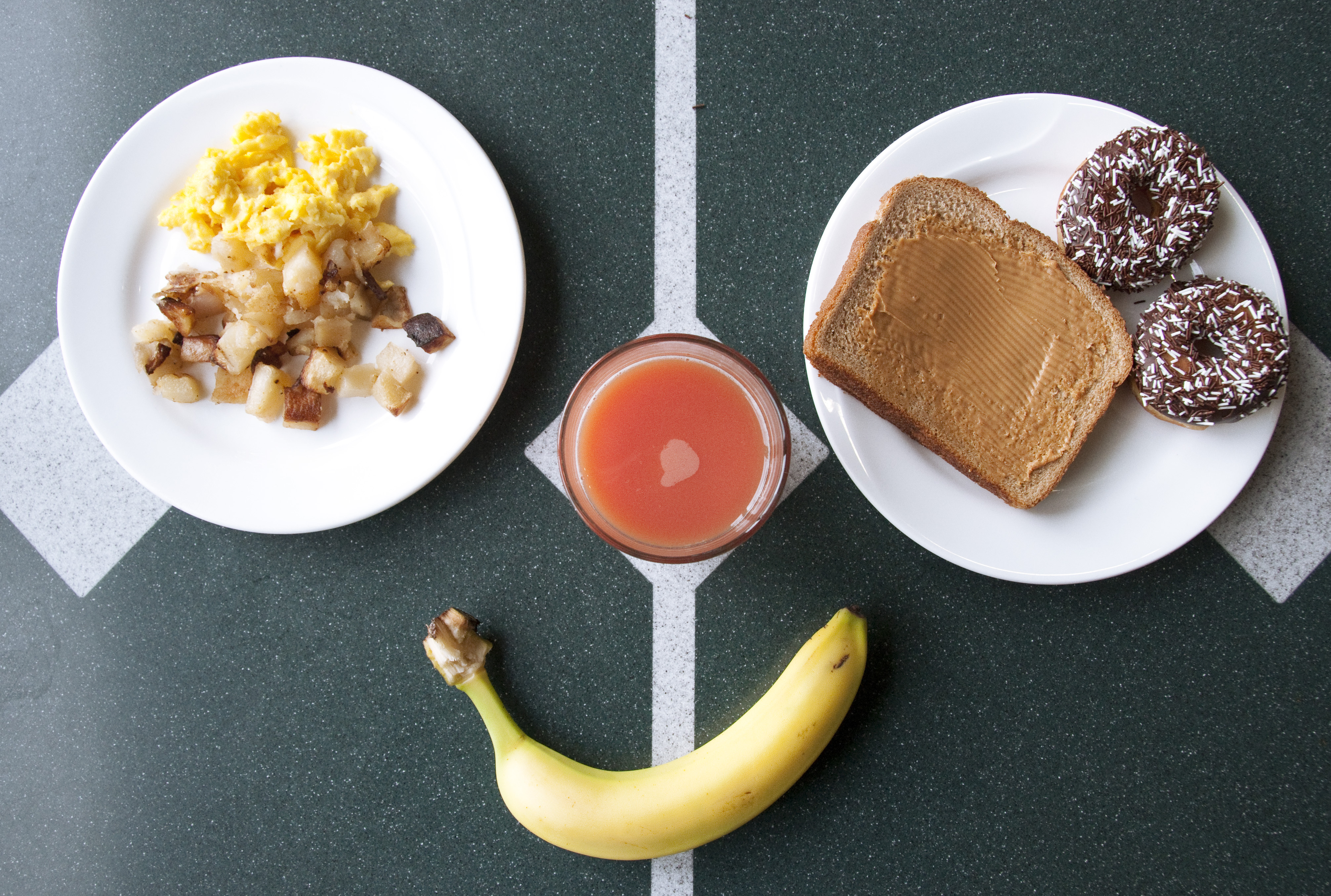Shape It Up: _Food friends and foes: the calories that really count_

By Margaret Davis
April 12, 2012 11:51 p.m.
Dietary supplements, juice fasts, cabbage soup diets ““ people do crazy things to lose weight. Some work, some don’t. I’ve always had an intense interest in learning how to be healthy, so I’ve spoken to nutritionists, personal trainers and other healthcare professionals. Throughout the quarter, I plan to dedicate a couple of columns to share what I have learned to help you separate the truths and myths.
Personally, I have found counting calories to be unproductive. It is a system I tried for a long time before I eventually realized counting calories wasn’t helping me get into shape. I have learned that the types of calories I consume seem to be more important than the number of calories. In other words: quality over quantity.
Let’s compare two meals. You can either go to Bruin Café for breakfast and get coffee with a butter croissant, or you can have a full meal at Covel. There, you can get a plate of scrambled eggs and whole grain toast with peanut butter. You can also take out a banana to snack on later.
The breakfast at Covel contains significantly more calories, fat and carbohydrates. But it’s the smarter choice. Based on a 2,000 calorie diet, the croissant provided around 15 percent of your daily value of protein and around 4 percent of your daily value in calcium. In contrast, the meal at Covel provided about 40 percent of your daily value in protein and about 5 percent of your daily value in calcium. It also provides you brown carbs, which contain vitamins, minerals and fiber. The croissant gives you white carbs, which are essentially refined sugars. These percentages are hard to ignore.
The Covel meal is also more likely to keep you full and less likely to eat junk food later. Plus, it includes a snack to have between classes. I know how important swipes are around here, so this is a way to get your full use out of them.
Learning the ins and outs between calories that provide beneficial nutrients and calories that do not was only half the battle for me. After that I had to learn portion control. Even good calories can lead to weight gain if you have too many of them.
Portion control has potential to be a struggle at UCLA. After all, the food tastes great and just one swipe can get a student unlimited food in a dining hall. Even the residential restaurants give a substantial amount of food per swipe.
It’s awesome that UCLA gives students their money’s worth on meal plans, but that is not reason to over-indulge.
Luckily, it can be avoided. The easiest ““ and often most ignored ““ way to avoid over-eating is sharing a meal. When I started eating at Rendezvous, I would eat almost an entire combo meal single-handedly. One day, I split a meal with a friend and realized that even eating half of the amount I usually did was enough food.
It gets more complicated in a dining hall. Not only is there no realistic way to share with someone, but there is an unlimited amount of food and desserts.
The best way I found to handle this is to know what I am going to eat ahead of time. In my own experience, I have had more success controlling portions when I enter a dining hall with a meal in mind because then I am less tempted to take samples from every kitchen.
To plan a dining hall meal, I recommend taking advantage of the nutritional facts on the housing website and using it to find a meal that suits your own dietary needs. For example, because I’m a vegetarian, I try to pick a dining hall where I can find a meal that is high in iron, while an athlete might look for a meal that is high in protein.
As for the delicious desserts, I usually try to walk by without looking at them. A bowl of a nutritious cereal is always a good option when a meal doesn’t fill you up. But that doesn’t mean you can’t treat yourself every once in awhile.
While finding a diet that works for you matters, it is most important to use the diet to make yourself healthy.
It is finally being said that “Healthy doesn’t mean skinny”; and people should remember to make “healthy” their diet goal.
What motivates you to get fit? Email Davis at [email protected].

